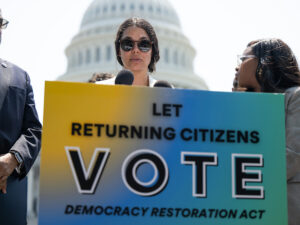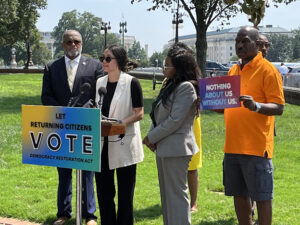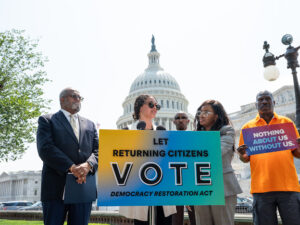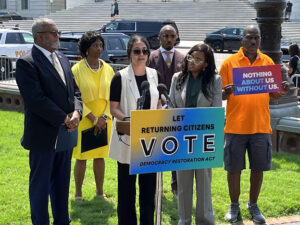While the right to vote is fundamental to democracy, felony disenfranchisement laws prevent millions of people with criminal legal histories from voting. Because Black people and people of color are disproportionately impacted by the criminal legal system, felony disenfranchisement laws disproportionately preclude Black and Brown people from voting. Access to voting and civic engagement promotes long-term reentry success by providing an avenue for prosocial engagement and belonging within their communities.
The Reentry Working Group urges support and implementation of federal voting rights restoration policies for individuals with criminal legal histories who have been disenfranchised. While enacting and implementing such laws and policies, it is essential to consider voters who are multi-marginalized, including those encountering language barriers, individuals requiring reasonable accommodations under the Americans with Disabilities Act (ADA), and others, to guarantee accessibility to voting for everyone.
The Reentry Working Group has a subcommittee on Voting Rights Restoration, which focuses on the right to vote for justice system-impacted individuals. This subcommittee is chaired by Brittany Lovely (JD Candidate at Georgetown Law School & Systems Change Consultant) and Ken Goldsmith (Senior Legislative Counsel, Governmental Affairs Office, American Bar Association).




Photos of Reentry Working Group member Brittany Lovely speaking about the importance of voting rights restoration at the introductory press conference for the Democracy Restoration Act alongside Representatives Jasmine Crockett (D-TX-30) and Troy Carter (D-LA-02).
Policy brief published in April 2023 by the Sentencing Project. Download here